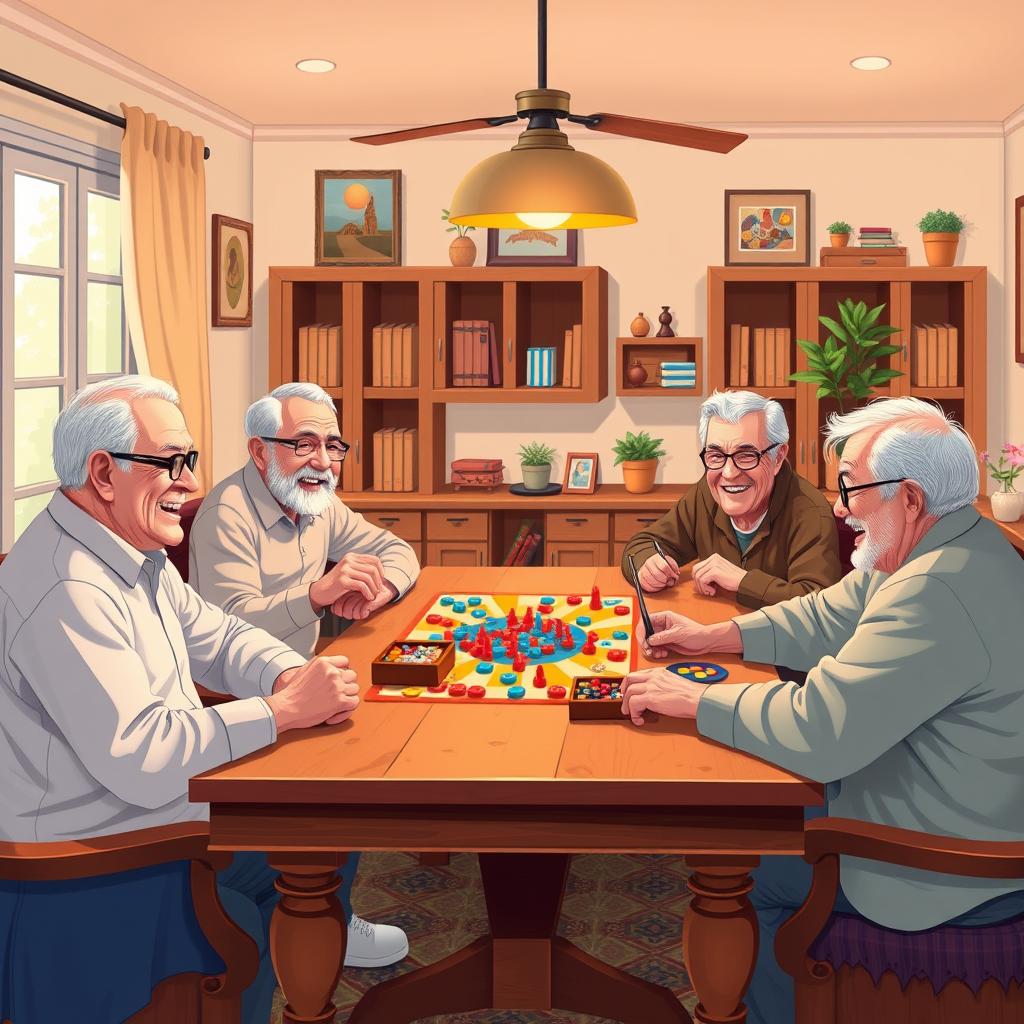
The Joy of Board Games for Seniors: Benefits, Recommendations, and Tips
Introduction
Board games have long been a source of entertainment and connection for people of all ages. For seniors, they offer much more than just fun—they provide cognitive stimulation, social interaction, and opportunities to stay physically engaged in low-impact ways. In this article, we’ll explore the benefits of board games for seniors, recommend some great options, and share tips for choosing the perfect game.
Benefits of Board Games for Seniors
Cognitive Stimulation and Memory Improvement
Playing board games can significantly boost cognitive function in seniors. These activities challenge the brain by requiring players to think strategically, solve problems, and make decisions.
- Games like chess or puzzles engage memory recall and enhance problem-solving skills.
- Regular play may help delay age-related cognitive decline, keeping the mind sharp and active.
Social Interaction and Emotional Well-Being
Loneliness is a common issue among older adults, but board games foster meaningful connections. They encourage conversation, laughter, and teamwork.
- Cooperative games allow players to work together toward a common goal, strengthening bonds.
- Playing regularly can reduce feelings of isolation and promote emotional well-being.
Low-Impact Entertainment for Physical Health
While not as physically demanding as sports, board games still contribute to physical health. Moving pieces around the board, shuffling cards, or handling dice promotes fine motor skills and hand-eye coordination.
- These small movements are gentle yet effective in maintaining dexterity.
- Engaging in regular gameplay can also lower stress levels, benefiting overall health.
Recommended Board Games
Classic Games (Chess, Checkers)
Timeless classics never go out of style. Chess and checkers are excellent choices for seniors who enjoy deep strategic thinking.
- Chess challenges players to plan several moves ahead, enhancing focus and foresight.
- Checkers offers simpler rules but still requires tactical planning, making it accessible for beginners.
Cooperative Games (Pandemic, Forbidden Island)
For those who prefer collaboration over competition, cooperative games are ideal. Players work together to achieve objectives, fostering teamwork and communication.
- *Pandemic* tasks players with stopping global outbreaks, creating an immersive experience.
- *Forbidden Island* involves rescuing treasures before the island sinks, adding excitement and urgency.
Easy-to-Learn Games (Ticket to Ride, Carcassonne)
Not all games need complex rules. Some modern options strike a balance between simplicity and engagement.
- *Ticket to Ride* lets players build train routes across maps, combining strategy with colorful visuals.
- *Carcassonne* uses tile placement to create medieval landscapes, appealing to creative minds.
Tips for Choosing the Right Game
Consider Group Size and Preferences
The right game depends on how many people will play and their interests.
- Small groups might enjoy intimate games like chess or checkers.
- Larger gatherings benefit from party-style games that accommodate multiple players.
Prioritize Simple Rules and Engaging Themes
Complexity shouldn’t be a barrier to enjoyment. Look for games with straightforward instructions and captivating themes.
- Avoid overwhelming new players with intricate mechanics.
- Choose topics that resonate with seniors, such as travel, history, or nature.
Board games are a fantastic way for seniors to stay mentally agile, socially connected, and physically engaged. Whether you’re exploring classic favorites or discovering modern hits, there’s something for everyone. So why wait? Gather your friends or family, pick a game, and start enjoying the countless benefits today! If you’re unsure where to begin, try one of our recommended titles—you won’t regret it.


